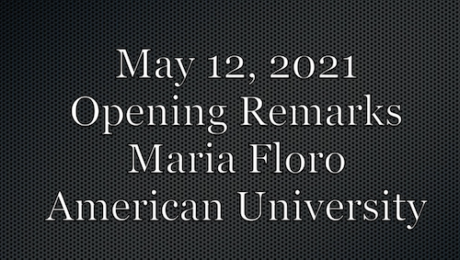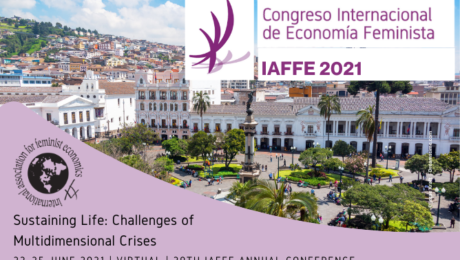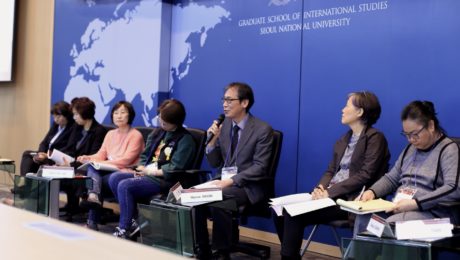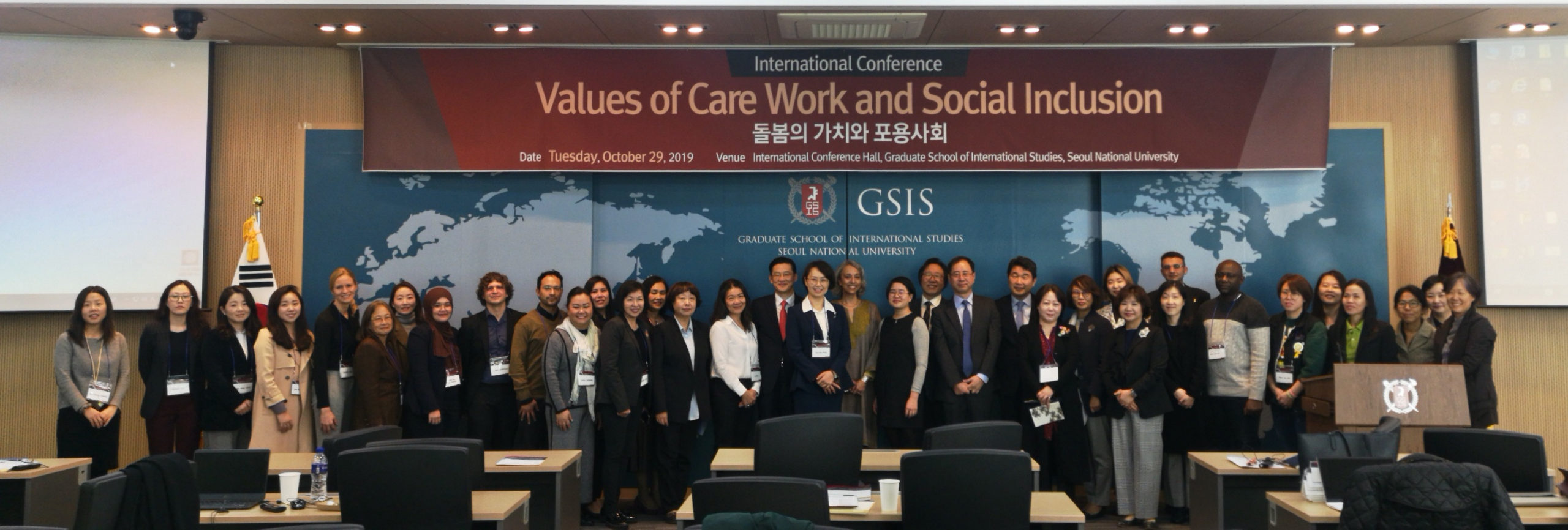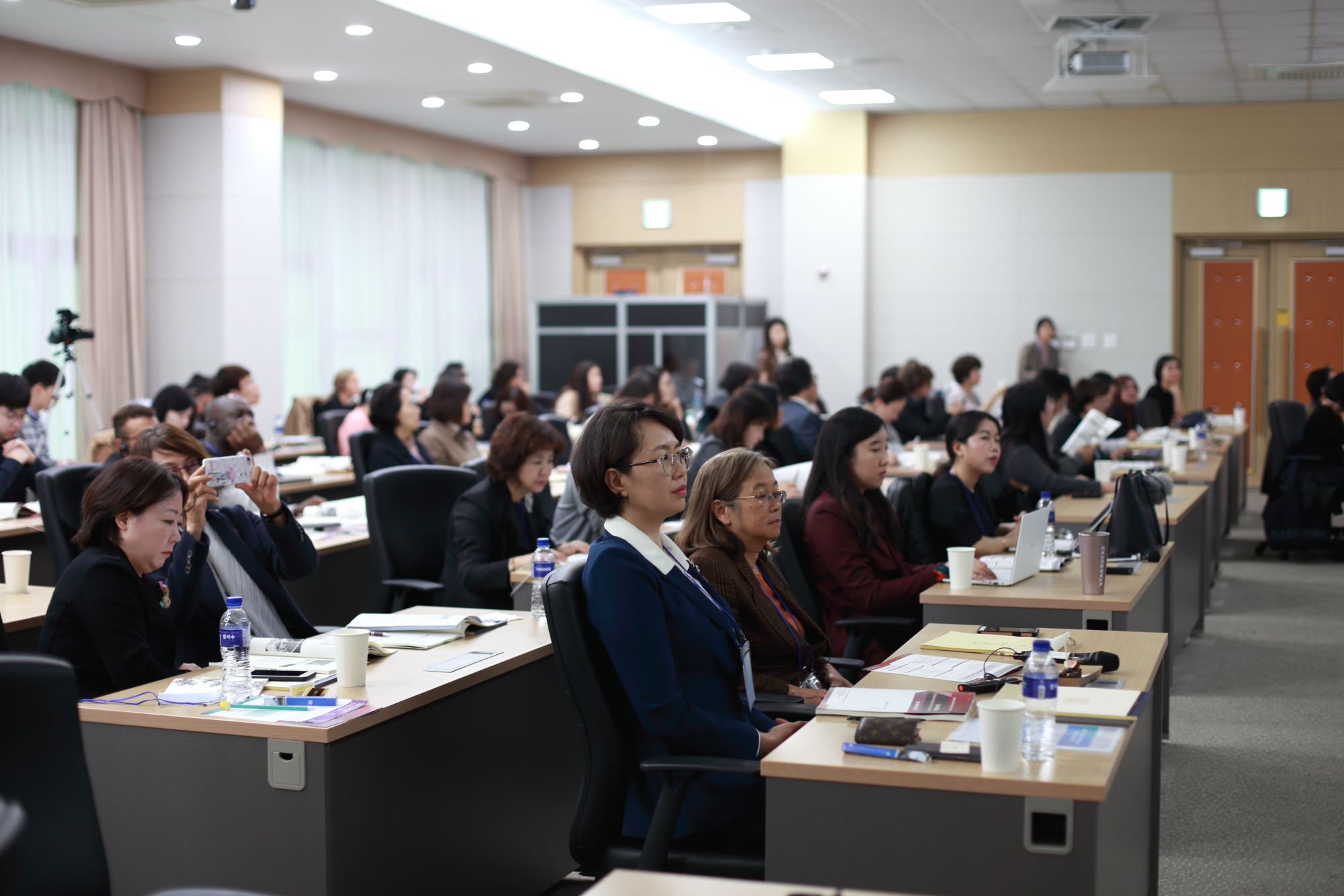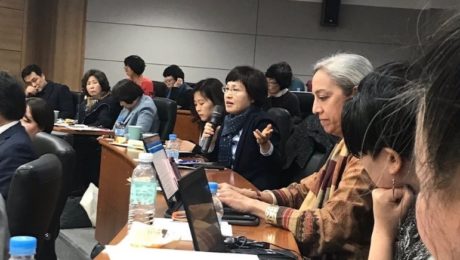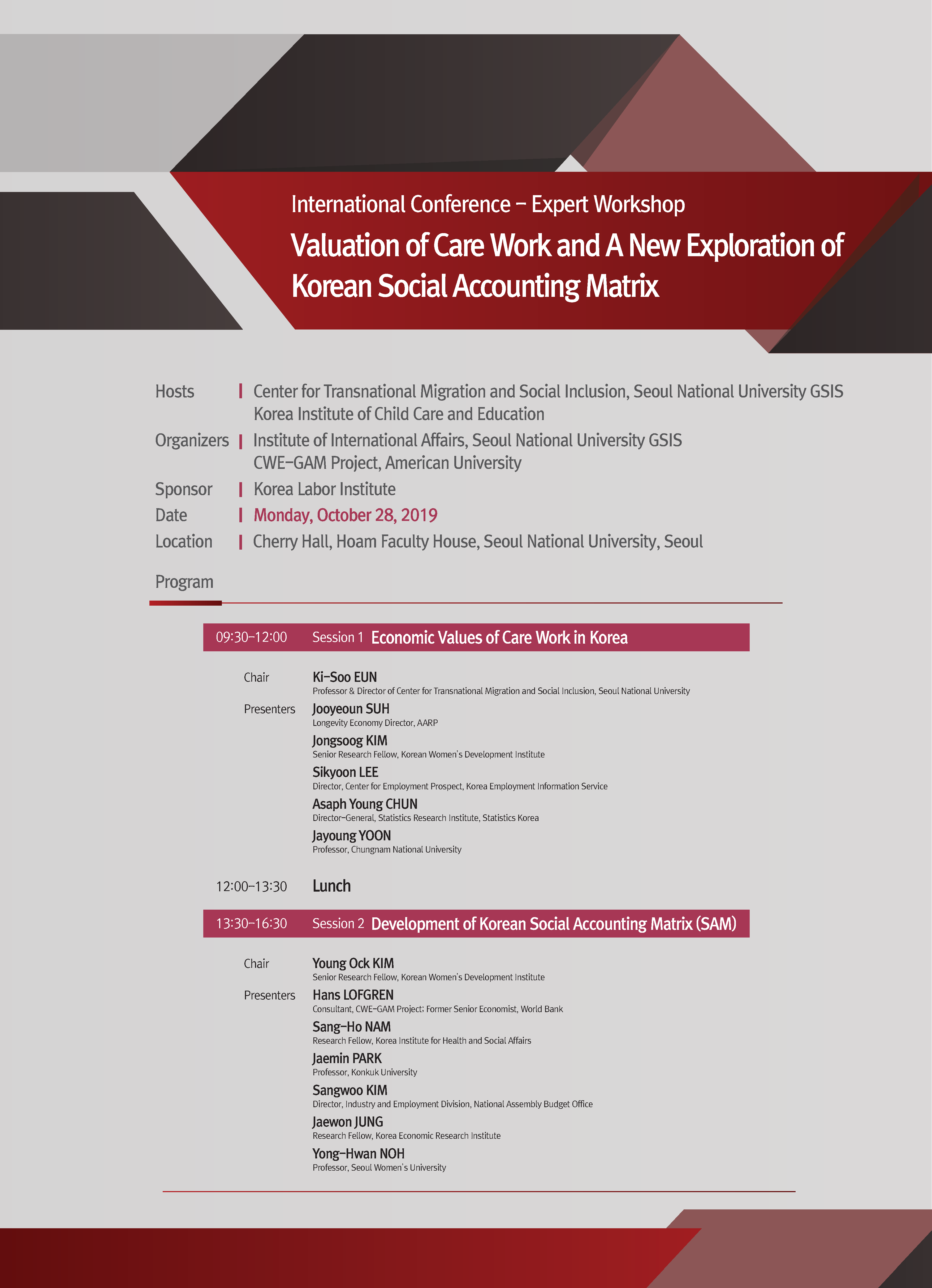The Journey of the Care Work and the Economy Project
As the CWE-GAM project is coming to a close, the final activities in the summer of 2021 showcased the groundbreaking research that was conducted over the past year and prompted valuable conversations between researchers, activists, donors, and more. Professor Maria Floro, the Co-Principal Investigator of the project, launched the Concluding Annual Meeting with opening remarks that summarized the timeline, features, and accomplishments of the project.
The Care Work and the Economy project began in 2017 and was built around the fundamental research goals of highlighting the impact of care work, socially and economically, and emphasizing the need for policy agendas to address the care economy. The project’s working groups consisted of innovative, interdisciplinary researchers who brought expertise and toolkits from a variety of schools of thought including heterodox, feminist, political economy, structural, and mainstream economics. The project used South Korea as a case study for the care economy which was made possible by a strong partnership with Korean researchers and the collection of unique time use and household survey data by the Center for Transnational Migration and Social Inclusion at Seoul National University.
Over the course of the past four years, the project has hosted two annual meetings, two conferences with Korean advocacy groups, and virtual workshops during the Covid pandemic. Additionally, the project produced two policy tools for the Korean government, 33 working papers showcased on the project website, and special issues in Feminist Economics and World Development. The final two activities conducted by the project were the Seoul Policy Dialogue in early June and a virtual intensive course on Gender-Sensitive Macroeconomic Modelling for Policy Analysis in partnership with the Levy Institute at Bard College.
To watch the full Opening Remarks of Professor Maria Floro from the Concluding Annual Meeting, see below.
Written by Catherine Falvey, Research Assistant for the Care Work and the Economy project and PhD student in Economics at American University
- Published in Conferences, Expert Dialogues & Forums, Maria Floro
CWE-GAM Scholars Leading Two Panels During 2021 IAFFE Annual Conference
This week, the International Association for Feminist Economics (IAFFE) will hold its Annual Conference: “Sustaining Life: Challenges of Multidimensional Crises” starting on Tuesday, June 22nd, and concluding Friday, June 25th. This conference will provide a forum for scholars to discuss feminist approaches to constructing “inclusive and resilient economic and political systems and [sustainting] our environment” in the context and aftermath of the COVID-19 pandemic.
The Care Work and the Economy Project will be leading two panel discussions on Wednesday, June 23rd and Thursday, June 24th: “Those Who Care: Improving the Lives of Caregivers and Workers” chaired by Elizabeth King and Ito Peng, and “Seeking Gender Aware Applied modelings: Case of South Korea” chaired by Young Ock Kim. In the discussions, CWE-GAM researchers will present gender-aware macroeconomic models, data collected from unique surveys of care providers and families, and microeconomic simulations used to better understand care work and the economy.
“Those Who Care: Improving the Lives of Caregivers and Workers” is scheduled for Wednesday, June 23rd from 3:30 to 5:00 pm (EDT time) and will contribute to ongoing efforts to “illustrate the intersectionality of care provisioning, economic growth, and distribution.” With an increasing need for care due to the rapid decline in fertility rates and aging population, South Korea offers a unique context to introduce models and analyze surveys given to households, child and eldercare workers.
There will be four papers presented in this panel:
“The Effects of Public Social Infrastructure and Gender Equality on Output and Employment: The Case of South Korea” by Cem Oyvat and Ozlem Onaran “introduces a post-Kaleckian feminist model to analyze the effects of public social expenditure and gender gaps on output and employment building on Onaran, Oyvat, and Fotopoulou (2019), and extending it with an endogenous labor supply and wage bargaining model.”
“The Quality of Life of Family Caregivers: Psychic, Physical, and Economic Costs of Eldercare in South Korea” by Jiweon Jun, Elizabeth King, and Catherine Hensly “examines the psychic, physical, and opportunity costs of caregiving within the family using data from a special-purpose national survey of 501 households conducted in Seoul in 2018.”
“Quality of Care, Commitment Level, and Working Conditions: Understanding the Care Workers’ Perspective” by Shirin Arslan, Maria Floro, Arnob Alam, Eunhye Kang, and Seung-Eun Cha uses “the 2018 Care Work Economy (CWE-GAM) survey data collected from 600 child and eldercare workers in South Korea [to] analyze patterns of commitment levels among [paid carers] in various settings such as private and public institutions as well as in homes of recipients by conducting tobit regressions and entropy econometrics for robustness checks.”
“Impacts of COVID-19 on Work-Family Balance in South Korea: Empirical Findings and Policy Implications” by Ito Peng and Jiweon Jun examines COVID-19’s unequal impact between men and women in South Korea using data from a survey distributed to “1,252 households with at least one child aged between 0 and 12 in June 2020 to find out how the first 2-month social distancing measure had affected their work, childcare arrangements, and their wellbeing.”
“Seeking Gender Aware Applied modelings: Case of South Korea” is scheduled for Thursday, June 24th from 3:30 to 5:00 pm (EDT time), which will share the results of gender-aware applied modelings and micro simulations for South Korea. The panel will discuss which fiscal policies are likely to be the most effective at reducing gender gaps in paid employment and which forms of public investment best contribute to reducing and redistributing unpaid work between genders and socio-economic groups.
There will be three papers presented in this panel:
“Child and Elderly Care in South Korea: Policy Analysis with a Gendered, Care-Focused Computable General Equilibrium Model” by Martin Cicowiez and Hans Lofgren presents the first care-focused and gendered model in the computable general equilibrium literature for Korea that “is built around a social accounting matrix (SAM) that covers non-GDP household services, singles out sectors for child and elderly care, and disaggregates households on the basis on care needs.”
“Care Support Ratios in Korea and the US” by Gretchen S. Donehower and Bongoh Kye takes a holistic view of care by including both paid and unpaid care for all age ranges and “create[s] [care support ratios] to understand the current care market and whether it is sustainable in the future…in two aging populations- Korea and the United States.”
“Towards a Caring and Gender-Equal Economy in South Korea: How much does the regulation of labor market working hours matter?” by Ipek Ilkkaracan and Emel Memis “use[s] a unique time-use survey on care arrangements by couples with small children in order to explore the potential of [the] reduction of full-time market work hours towards [the] narrowing of the gender gaps in paid and unpaid work.”
To learn more about the panels presented by CWE-GAM researchers and the IAFFE conference, please visit the IAFFE 2021 Annual Conference homepage and program.
This blog was contributed by Lucie Prewitt, a research assistant for the CWE-GAM project.
CWE Research Team Presents Prototype Model of the Care Economy at Conference in Colombia
June 13-15, I attended the 21st Annual Conference on Global Economic Analysis, held in Cartagena, Colombia, to present and discuss a draft of an early project output, titled “Care in an Aging East Asian Economy: Simulating the impacts of policies on gender roles, labor markets, and household welfare” and coauthored with two CWE Researcher colleagues, Marzia Fontana and Kijong Kim. The purpose of this paper was to take the first steps toward the development and testing of a computable general equilibrium (CGE) model of South Korea that can analyze policies related to care of both young and elderly. The conference was organized by GTAP, the leading global organization for this area of economic analysis, headquartered at Purdue University. While our paper could draw on the emerging literature of gendered CGE models, this may be the first time such a model is used to analyze issues related to care. In the Korean context, this extension is of outmost importance (like the rest of the project) given the challenges posed by a rapidly growing elderly population, a declining population in working age, and low participation of women in market work, which in its turn partly is due to the fact that women provide most of the care needed by other family members. The forthcoming analysis with the model will focus on policies that improve access to affordable, out-of-home, high quality care from private and public service providers. Empirical model simulations will assess the impact of such policies on a wide range of indicators, including gendered time use and the ability of South Korea’s many highly educated women to earn higher incomes from working more outside the home.
This blog was authored by Hans Lofgren
- Published in Conferences
- 1
- 2

